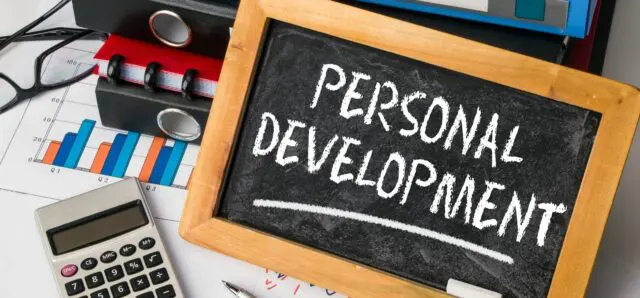
Personal development is a lifelong experience. Thinking this is something an individual can achieve in a couple of months or years is a massive mistake.
But there is one thing people can actually influence in choosing the right strategy.
Let’s talk about the most efficient ones.
Part 1: Establishing a Foundation for Development

Setting clear and achievable goals is the cornerstone of personal and professional development.
Implementing S.M.A.R.T. goals—Specific, Measurable, Achievable, Relevant, Time-bound—helps in laying down a precise path to success.
For instance, a personal goal might be to improve physical health by jogging three times a week, while a professional goal could involve enhancing project management skills through a certification course.
Building a strong professional network can open doors to numerous opportunities and insights. Finding a mentor can provide guided growth and support, crucial for navigating one’s career path.
Part 2: Strategies for Development

Utilizing one’s personal learning style is vital for efficient learning and knowledge application. Customizing learning approaches—be it through visual aids, practical implementations, or group discussions—can enhance understanding and retention.
Incremental Growth
Setting grand goals can be overwhelming. Instead, focusing on small, manageable objectives can make the journey more achievable.
For example, splitting a large goal into smaller, actionable steps can prevent burnout and maintain progress.
Self-Assessment and Reflection
Regular self-assessment helps in tracking both personal and professional growth. Reflecting on what strategies worked or didn’t allows for necessary adjustments, ensuring continuous improvement and effectiveness.
Part 3: Balancing Personal and Professional Life

Achieving a harmonious balance between personal life and professional obligations is paramount for sustained success and well-being.
The concept of work-life integration emphasizes creating a lifestyle where work and personal life complement rather than conflict with each other.
Many people struggle with this element. That is why so many have decided to find a new life coach online who can provide some guidance.
Successful individuals often leverage flexible work schedules, prioritize tasks effectively, and set clear boundaries between work time and personal time.
These strategies help in managing stress and preventing burnout, enabling a more productive and satisfying life.
Anecdotes from leaders in various industries, who share their approaches to balancing these aspects, can serve as motivational guides that illustrate practical applications of these strategies.
Strategies for Effective Balance
One effective method for achieving work-life balance is to adopt a disciplined approach to time management. Using tools like digital calendars to block out time for work tasks and personal activities can help ensure that neither area is neglected.
Being present at the moment and fully engaging in the task at hand—whether attending a child’s recital or leading a critical meeting—enhances performance and satisfaction in both realms.
Mental and Physical Well-being
Maintaining both mental and physical health is crucial for anyone looking to sustain their personal and professional development over the long term. Incorporating regular physical exercise into one’s routine not only improves overall health but also boosts mental clarity and energy levels, which are essential for productivity.
Part 4: Overcoming Challenges

The path to success is filled with challenges. Developing resilience helps in overcoming setbacks and adapting to change. Learning from mistakes is essential, as each failure provides valuable lessons on the road to achievement.
Staying motivated over the long term requires techniques such as setting intermittent goals and celebrating small victories. These practices help sustain enthusiasm and commitment to one’s developmental goals.













